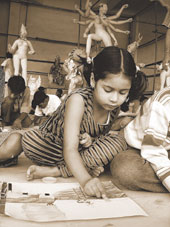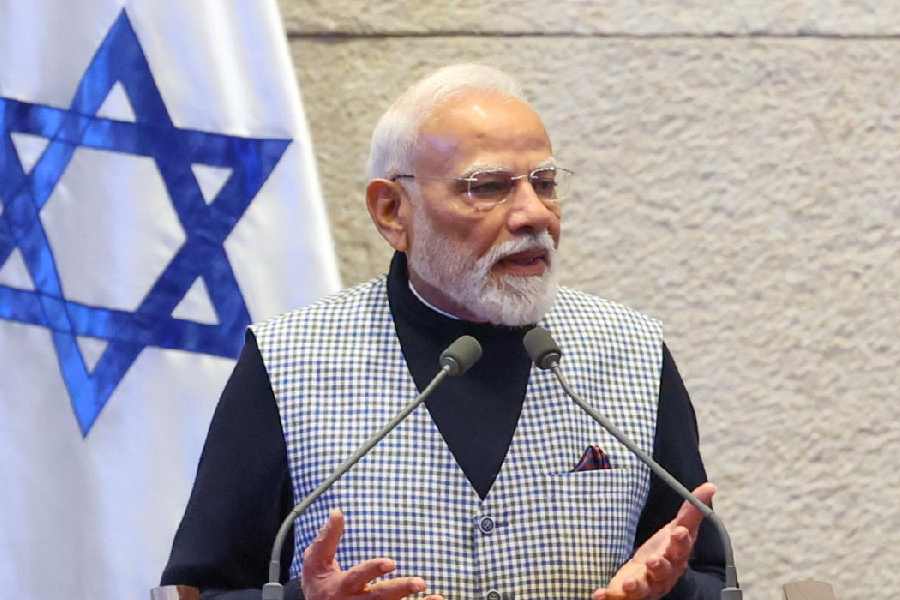 |
If your child is slouching at the dinner table, the classroom could be the culprit.
Fixed desks attached to benches ? standard furniture at most city schools ? have been pinpointed as the source of posture problems leading to neck and back pain amongst students, prompting the Council for Indian School Certificate Examinations (CISCE) to sit up and take notice.
Schools under the CISCE have been directed to use adjustable furniture, especially in libraries, laboratories and computer rooms. Fixed desk units are popular as they make the daily classroom cleaning process easier.
Complaints of orthopaedic disorders linked to posture problems amongst adults are on the rise and orthopaedic surgeons say some cases can be traced back to childhood movement. Around three to four schoolchildren a day are turning up at hospital clinics with severe neck and back pain.
?Schools have been asked not to use chairs and tables that are uncomfortable and constraining for students,? said G. Arathoon, deputy secretary, east zone, CISCE. Chairs and tables, particularly while working with computers, should accommodate differences in body size, he added.
The council had asked affiliated institutions to upgrade classroom furniture a few years ago. Many have still not complied with the order. The CISCE now intends to take action against schools that violate the instructions.
The desk, say experts, should be at elbow level. ?If the table is close to the body, the child can sit upright. Otherwise the child has to lean forward, which can lead to pain of the neck and back,? explained orthopaedic surgeon Buddhadeb Chatterjee, attached to Apollo Gleneagles Hospital.
Sitting for a long time can cut off blood circulation to the lower legs if the seat edge is too close to the back of the knee. Taller students need support under the thighs to relieve the pressure on the buttocks. ?Posture-related pain must not be mistaken for spondylitis,? warned Chatterjee.
?Most schools are trying to ensure comfort of the students and are adopting the rules,? said J.K. Sen, general secretary, Association of Heads of Anglo-Indian Schools.











